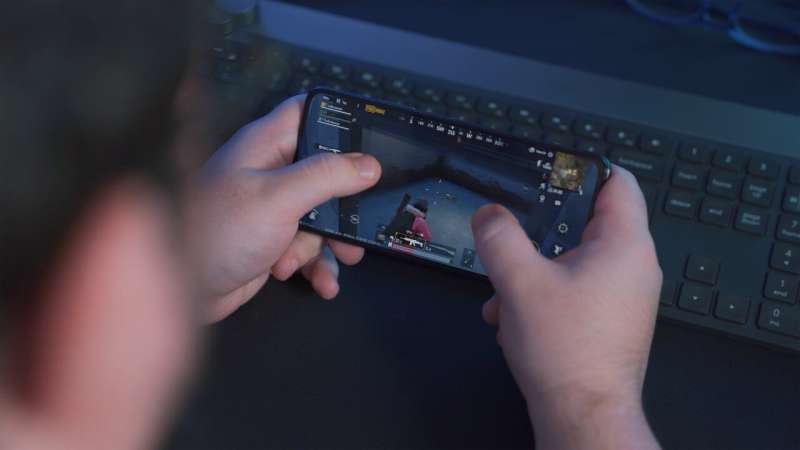'Tweens' increased media use during the 2020 pandemic summer, says study

"Put down your phone" is a common parental phrase, the modern-day equivalent of "turn off the TV." That's because parents have long thought that staring at a screen for too long will have a detrimental effect.
However, parental concerns about media use appeared to take a backseat in 2020, when COVID-19 forced parents to make accommodations for children who were spending more down time at home and less time in social settings.
"For years, many media scholars have begged adults to look beyond just the amount of time children use media and look at what they are doing with it and how it was impacting their lives," says Nancy Jennings, professor and children's media expert at the University of Cincinnati's School of Communication, Film and Media Studies.
From the survey, which appears in the journal Psychology of Popular Media, Jennings found:
- The majority of parents (83.7%) reported that their children were using media more during COVID-19 than before.
- One in five parents (21.2%) indicated that they had made a purchase of a household media device during COVID-19 and the most often reported purchases were for computing technologies such as laptop/desktop (25.5%) and Chromebooks (17.1%).
- During the COVID-19 summer of 2020, 19.5% of parents reported creating a social media account for their child. Of the platforms, parents most frequently allowed their child to create a TikTok account (25%), followed by Facebook Messenger (23%) and Instagram (17%). Parents reported that nearly half of the accounts were created for girls (47.6%) and 9- to 10-year-old children (45.7%).
- Established patterns of media use by gender before the pandemic were maintained. Boys continued to play video games, and girls watched videos.
- Parents who were more worried about the pandemic indicated their tween used media more overall and spent more time on a laptop or desktop computer than before COVID-19.
"With more tweens using media during the pandemic than before, it is more important than ever to reconsider our notions of 'how much' is 'too much' and really focus on what they are getting out of this use," says Jennings, who, as director of UC's Children's Education and Entertainment Research (CHEER) Lab, studies the impact of media on the lives of children and their families and public policies and practices involved with children's media.
For some, Jennings says, media helped tweens connect with their peers at a time when they were isolated in their homes. For others, it was a place to find distraction from the scariness around them and occupy their time.
Recognizing that children under the age of 13 years are technically not permitted to use many social media platforms like TikTok and Instagram according to the terms of use by these platforms, Jennings says that on one hand it makes sense as a way to stay connected to friends and family. "On the other hand, parents should carefully consider how their child will use the platform and what rules to establish with their tween about social media use."
In conclusion, Jennings says that researchers "need to take a deeper look at our kids' media use and move beyond the sheer quantity of time spent with media."
More information: Nancy A. Jennings et al, Parenting and tweens' media use during the COVID-19 pandemic., Psychology of Popular Media (2021). DOI: 10.1037/ppm0000376
Provided by University of Cincinnati




















